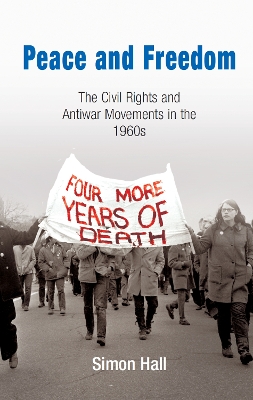Politics and Culture in Modern America
1 total work
Two great social causes held center stage in American politics in the 1960s: the civil rights movement and the antiwar groundswell in the face of a deepening American military commitment in Vietnam. In Peace and Freedom, Simon Hall explores two linked themes: the civil rights movement's response to the war in Vietnam on the one hand and, on the other, the relationship between the black groups that opposed the war and the mainstream peace movement. Based on comprehensive archival research, the book weaves together local and national stories to offer an illuminating and judicious chronicle of these movements, demonstrating how their increasingly radicalized components both found common cause and provoked mutual antipathies.
Peace and Freedom shows how and why the civil rights movement responded to the war in differing ways—explaining black militants' hostility toward the war while also providing a sympathetic treatment of those organizations and leaders reluctant to take a stand. And, while Black Power, counterculturalism, and left-wing factionalism all made interracial coalition-building more difficult, the book argues that it was the peace movement's reluctance to link the struggle to end the war with the fight against racism at home that ultimately prevented the two movements from cooperating more fully. Considering the historical relationship between the civil rights movement and foreign policy, Hall also offers an in-depth look at the history of black America's links with the American left and with pacifism.
With its keen insights into one of the most controversial decades in American history, Peace and Freedom recaptures the immediacy and importance of the time.
